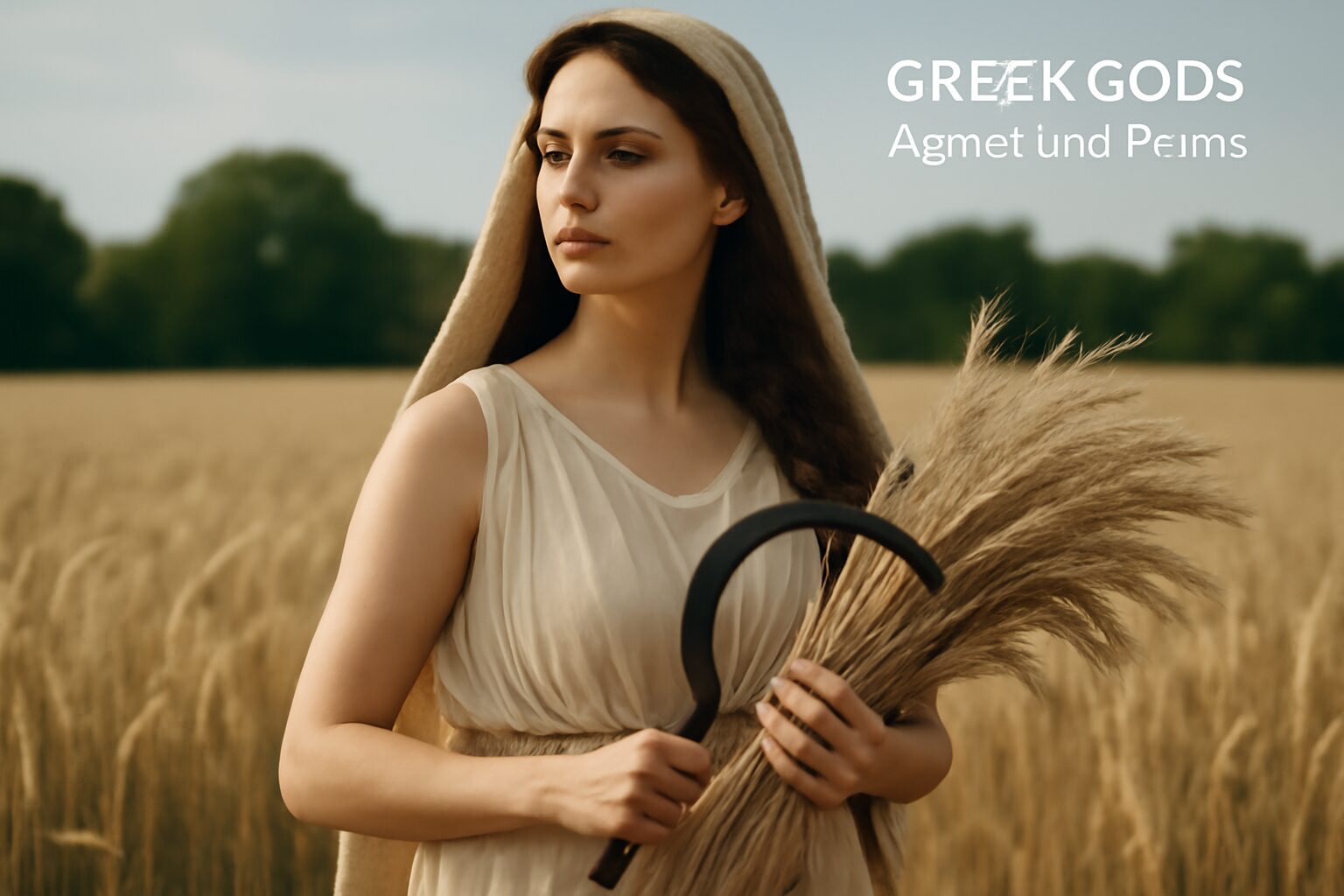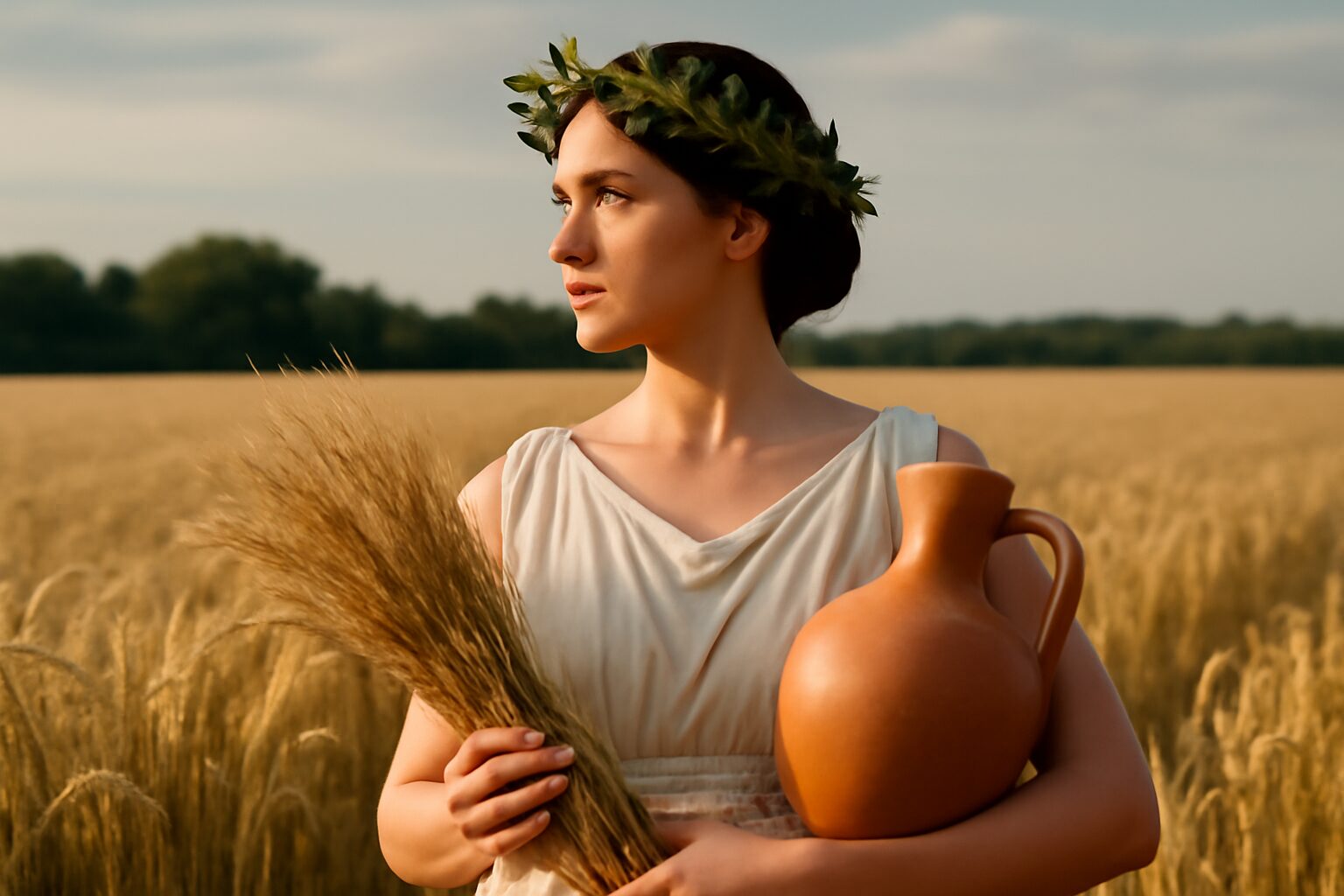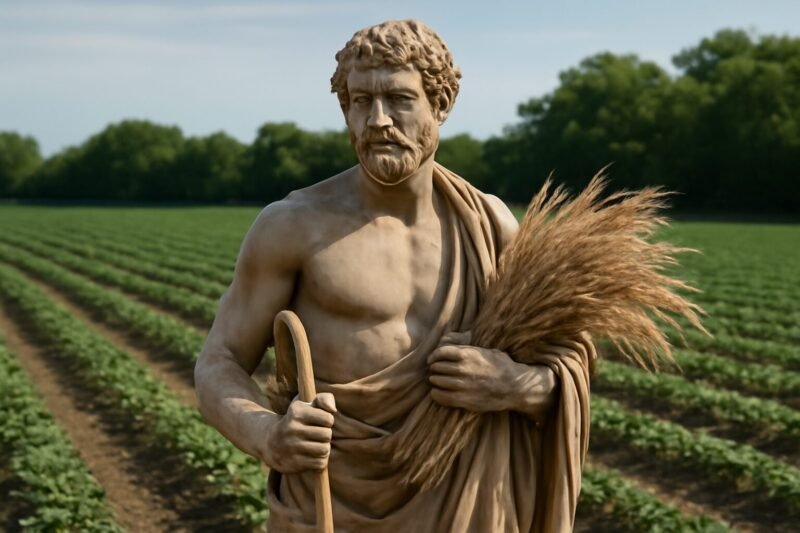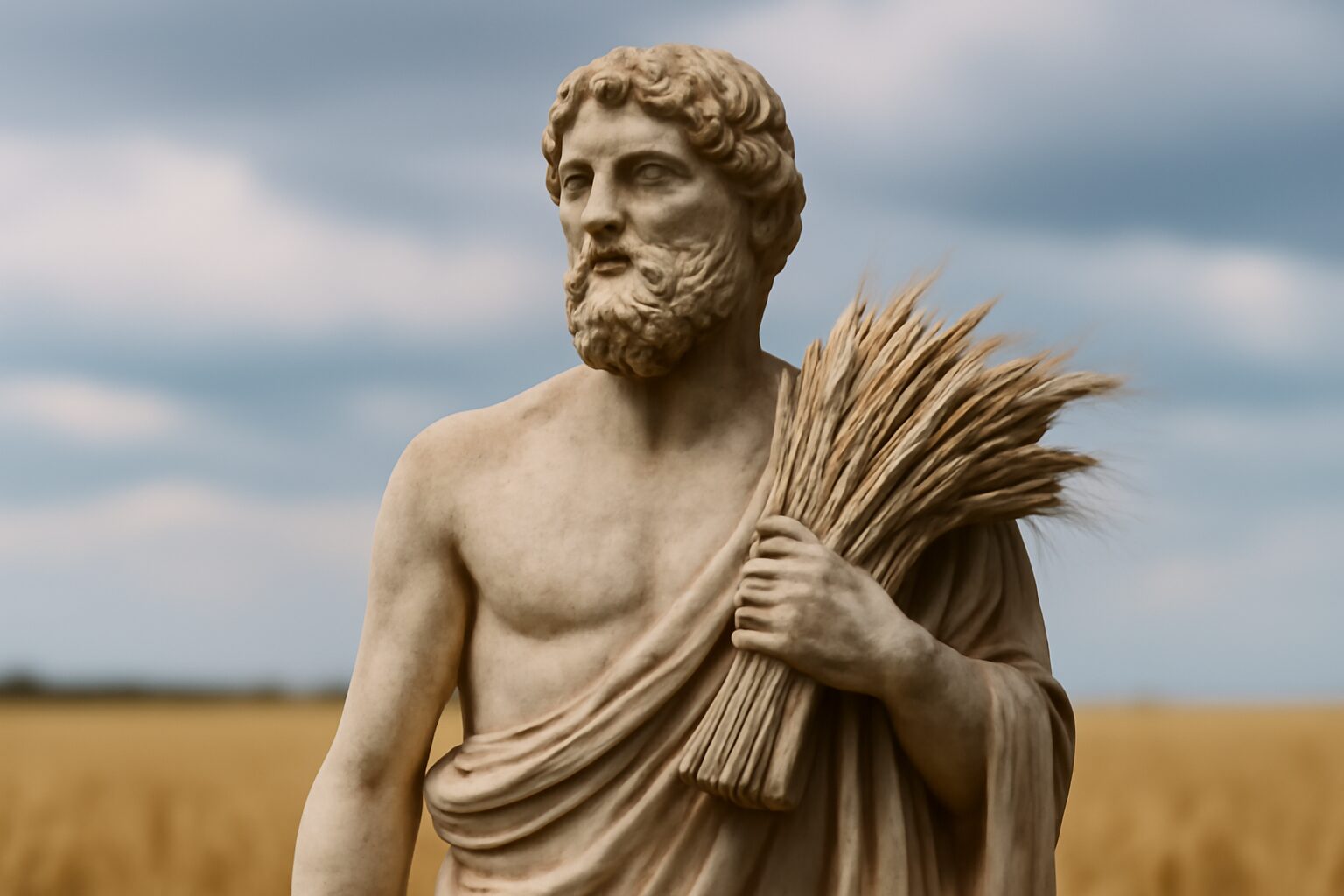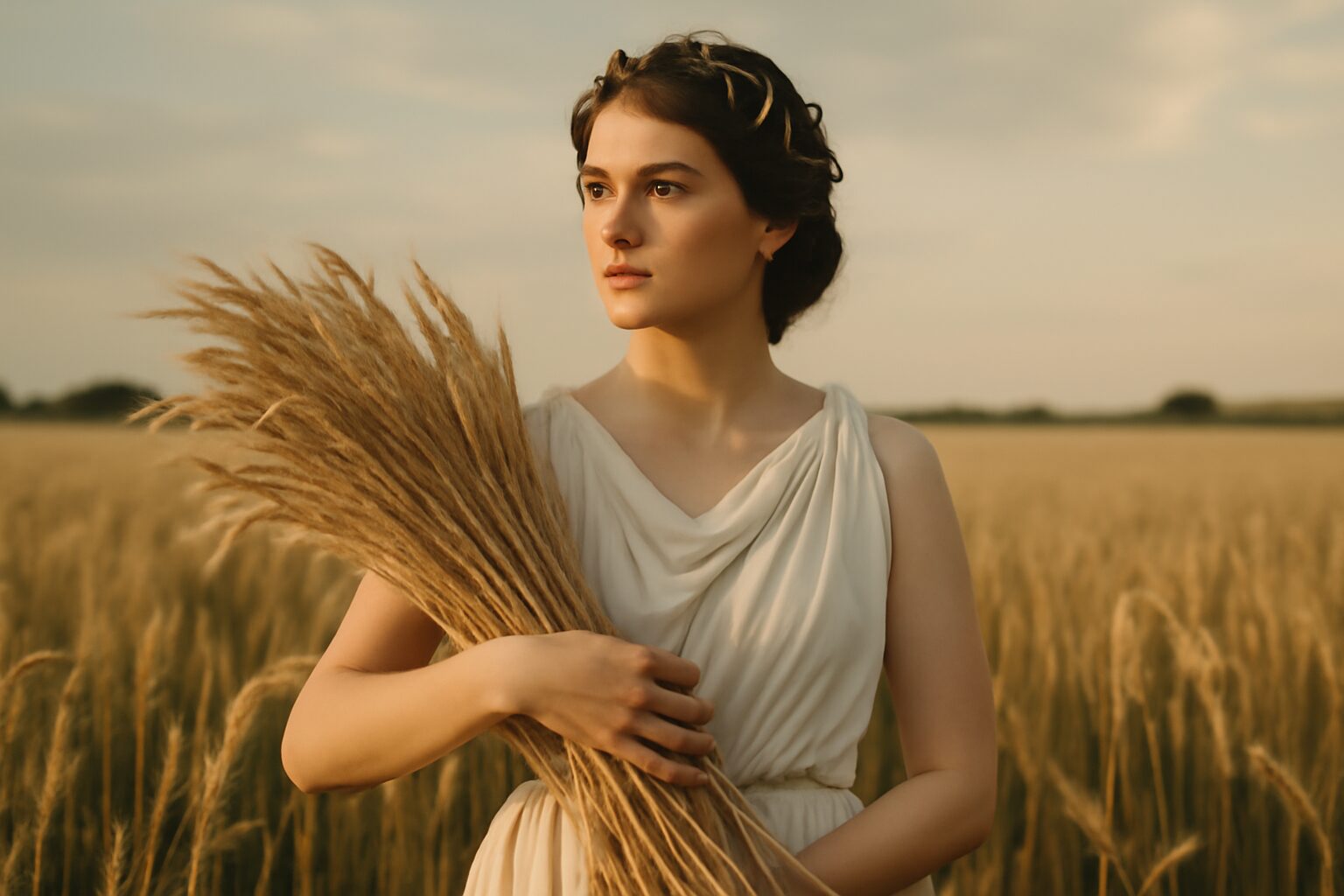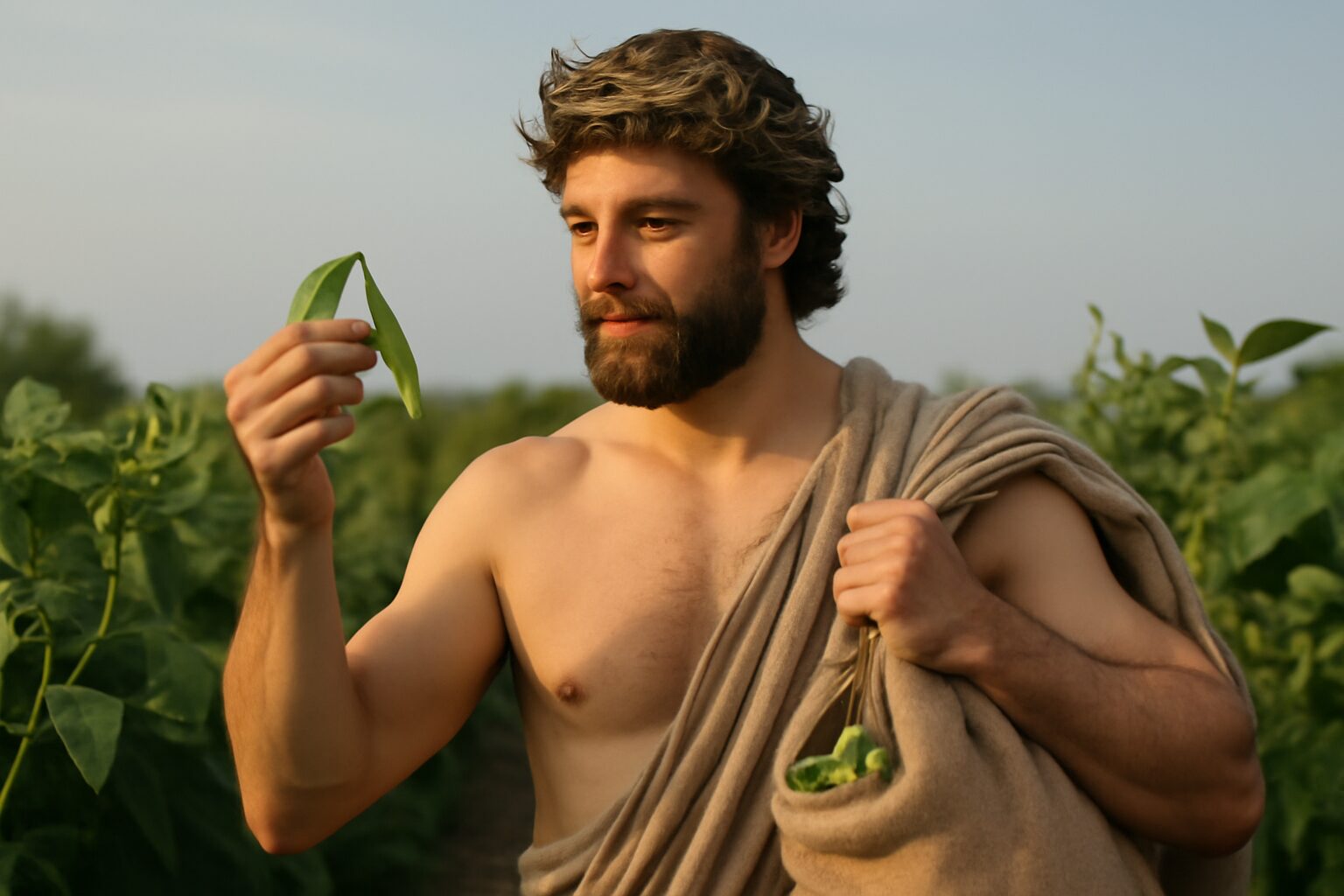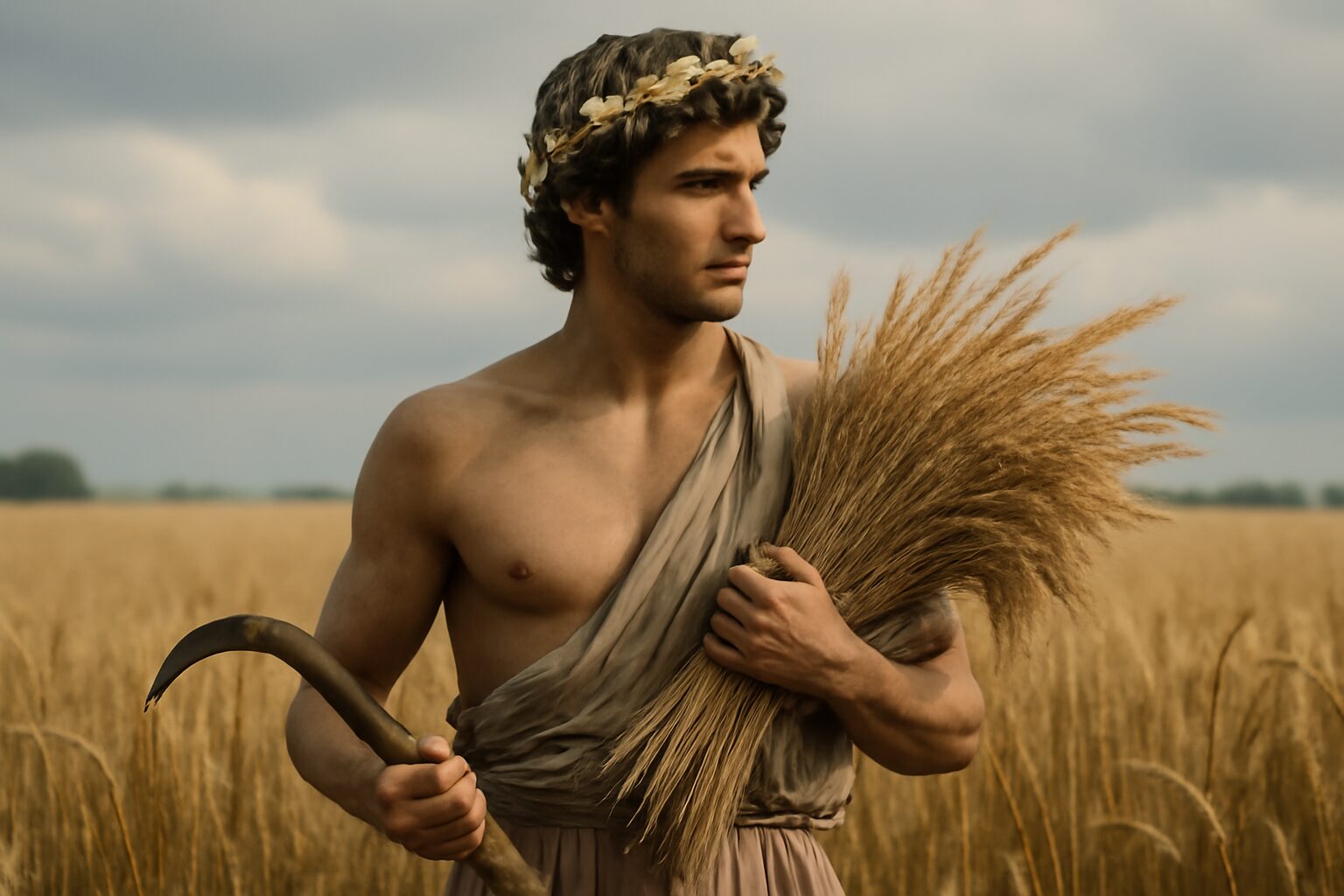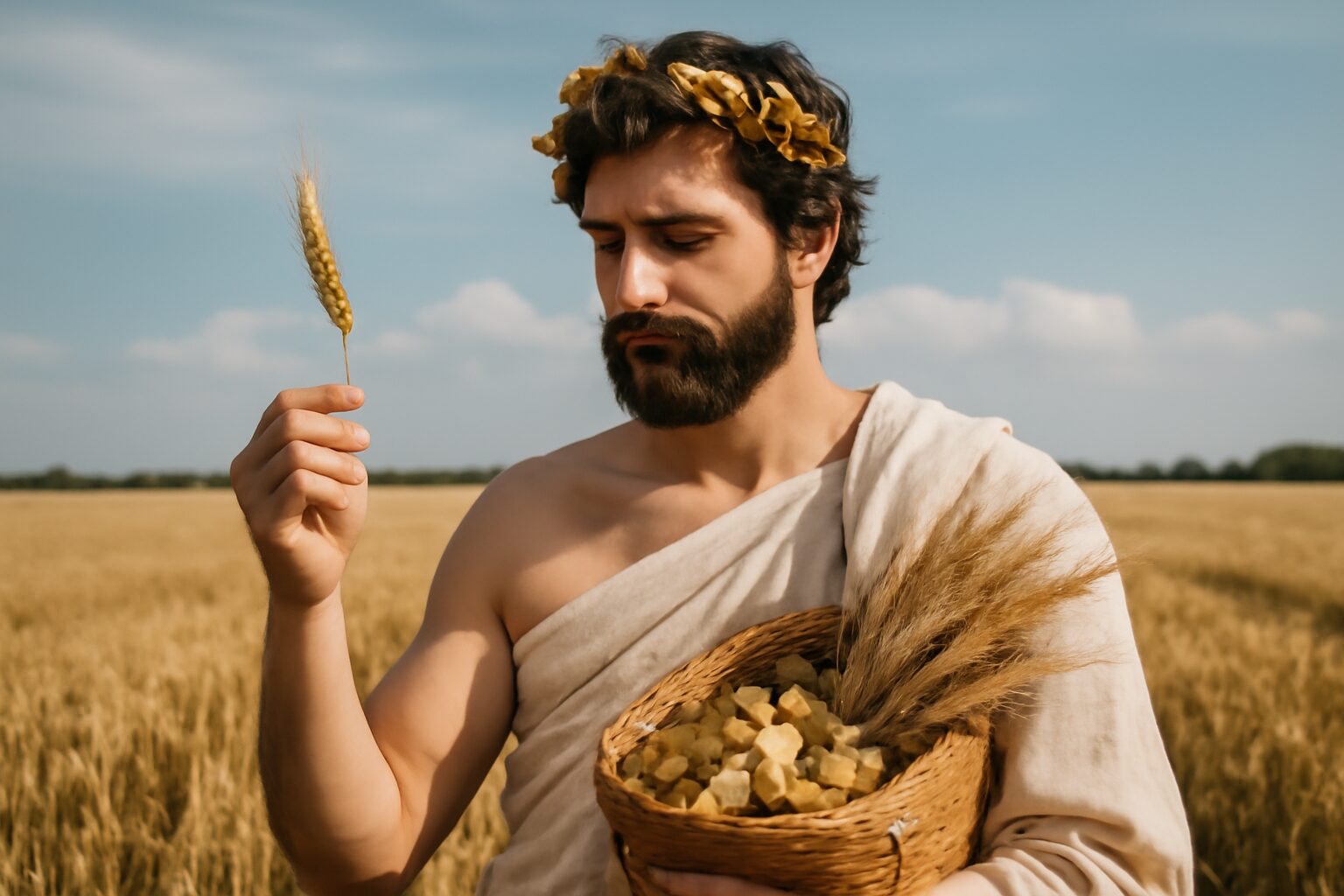Despoina: The Mysterious Arcadian Goddess
In the rugged mountains of Arcadia, the ancient Greeks worshiped Despoina, a mysterious goddess whose name literally means "the Mistress" or "the Lady". As a chthonic deity associated with fertility, nature, and the underworld, she held great significance in local Arcadian cults, though her worship remained largely confined to this region.
Mythology and Origins
Despoina was the daughter of Demeter, the goddess of agriculture, and Poseidon, the god of the sea. According to Arcadian myth, Poseidon pursued Demeter in the form of a stallion, resulting in Despoina's birth alongside the magical horse Arion. This unusual parentage reflects her dual nature—connecting the fertile earth with the mysterious depths of the underworld.
Her true name was considered so sacred that it was revealed only to initiates during secret rituals. The name "Despoina" was used publicly as a respectful title, much like "Persephone" (with whom she shares some similarities).
Powers and Worship
Despoina presided over the cycles of nature—particularly the growth of crops and the fertility of the earth. She was closely associated with her mother Demeter in Arcadian cults, often worshiped as part of a divine triad that included Demeter, Despoina, and the underworld god Hades (or his Arcadian counterpart).
Her primary sanctuary was at Lycosura, where archaeologists have discovered an impressive temple complex. Worship involved secret initiation rites and mysteries similar to the Eleusinian Mysteries of Demeter and Persephone. Pausanias, the 2nd-century travel writer, described a magnificent cult statue showing Despoina and Demeter seated together, wearing elaborate robes.
Symbolism and Legacy
Despoina represents the powerful yet often overlooked regional deities of Greece. Her mythology blends elements of earth goddesses and chthonic powers, reflecting the Arcadians' deep connection to their mountainous landscape. The secrecy surrounding her true name and rituals suggests she was considered a profoundly sacred figure.
While not as widely known as Olympian gods, Despoina's cult persisted for centuries in Arcadia, demonstrating the diversity of Greek religious practice. Today, she remains an intriguing example of how local traditions coexisted with the more famous Panhellenic myths.
Alternative Names for Despoina
God Name: Persephone (Greek)
In some contexts, Despoina is identified with Persephone, the queen of the underworld, especially in Arcadian cults where their roles and attributes overlap.
God Name: Demeter (Greek)
In certain Arcadian traditions, Despoina is closely associated or even conflated with Demeter, her mother, due to their shared connection to fertility and the earth.
God Name: Proserpina (Roman)
The Roman equivalent of Persephone, Proserpina is sometimes linked to Despoina when she is identified with Persephone in Greek mythology.
God Name: Kore (Greek)
Kore, meaning 'maiden,' is another name for Persephone in her youthful aspect, and by extension, sometimes used for Despoina in similar contexts.
Tales about Despoina
Despoina and the Healing Waters of Asclepius
In the misty valleys of Arcadia, where Despoina watched over the fertile lands, a blight began to wither the crops and sicken the mortals who tended them. Desperate, the farmers prayed to the gods for relief. Hearing their pleas, Despoina journeyed to the sanctuary of Asclepius, the god of healing, whose sacred springs were said to cure any ailment.
She found Asclepius tending to a wounded hero, his hands glowing with divine energy. "Great healer," Despoina implored, "my people suffer from a sickness that even the earth rejects. Lend me your wisdom to restore balance." Asclepius, moved by her compassion, offered her a vial of water from his serpent-entwined staff. "Let this mingle with your soil," he instructed, "and it shall purge the corruption."
Despoina returned to Arcadia and poured the enchanted water into the rivers. Instantly, the blight receded, and the fields bloomed anew. In gratitude, the mortals built a shrine where Despoina and Asclepius were honored side by side, a testament to the union of agriculture and healing. The shrine also drew the attention of Hegemone, goddess of plants, who blessed the renewed growth, and Clytie, a rustic deity associated with sun-loving flora, who ensured the crops received ample light. Later, Teles, a sea nymph, was invoked to provide gentle rains, completing the harmonious balance of elements.
Despoina's Pact with the Underworld's Queen
One autumn, as the seasons turned, Despoina noticed the souls of the dead wandering restlessly through her groves, unable to find peace. Determined to aid them, she descended into the shadowy realm of Hades, where she sought an audience with Persephone, queen of the underworld.
Persephone sat upon her ebony throne, her expression a blend of sorrow and strength. "Why do you disturb the silence of the dead, Despoina?" she asked. Despoina bowed respectfully. "These lost souls cling to the world above, hindering the cycle of life and death. I ask for your guidance to lead them to their rightful place."
Moved by Despoina's empathy, Persephone agreed. Together, they wove a veil of twilight, which Despoina draped over the mortal realm. The veil gently guided the spirits to the underworld, ensuring they would no longer linger. In return, Despoina pledged to honor Persephone each harvest, leaving offerings at the crossroads where the two worlds met. From that day forward, the bond between the goddess of agriculture and the queen of the dead ensured harmony between growth and decay. This pact was witnessed by Prophasis, the spirit of excuse, who absolved any lingering guilt among the souls, and Pholus, a wise centaur, who shared the tale to guide mortals in honoring the dead. Additionally, Rhapso, a minor goddess of sewing, was said to have aided in mending the veil whenever it frayed, preserving the boundary between worlds.
Frequently Asked Questions
Who is Despoina in Greek mythology?
Despoina is a Greek goddess associated with agriculture and fertility, often linked to the mysteries of the Arcadian cult. She is the daughter of Demeter and Poseidon, and her name means 'the mistress,' reflecting her role in the growth of crops and the earth's bounty.
Why was Despoina important in ancient Greek religion?
Despoina was important because she symbolized the fertility of the earth and the mysteries of agriculture. Ancient Greeks worshiped her to ensure good harvests and to honor the divine connection between the land and human survival.
What can we learn from the myths about Despoina?
The myths about Despoina teach us about the ancient Greeks' reverence for nature and agriculture. They highlight the belief in divine forces governing the cycles of planting and harvest, emphasizing the importance of respecting and honoring the earth.
How does the worship of Despoina relate to modern agriculture?
While modern agriculture relies on science, the worship of Despoina reminds us of the cultural and spiritual significance humans have placed on farming. It encourages appreciation for sustainable practices and the natural world, much like ancient traditions did.
Are there any festivals or rituals associated with Despoina?
Yes, Despoina was honored in secretive Arcadian mysteries and rituals, often involving agricultural themes. These ceremonies were meant to invoke her blessings for fertile land and abundant harvests, though detailed records are scarce due to their secretive nature.

